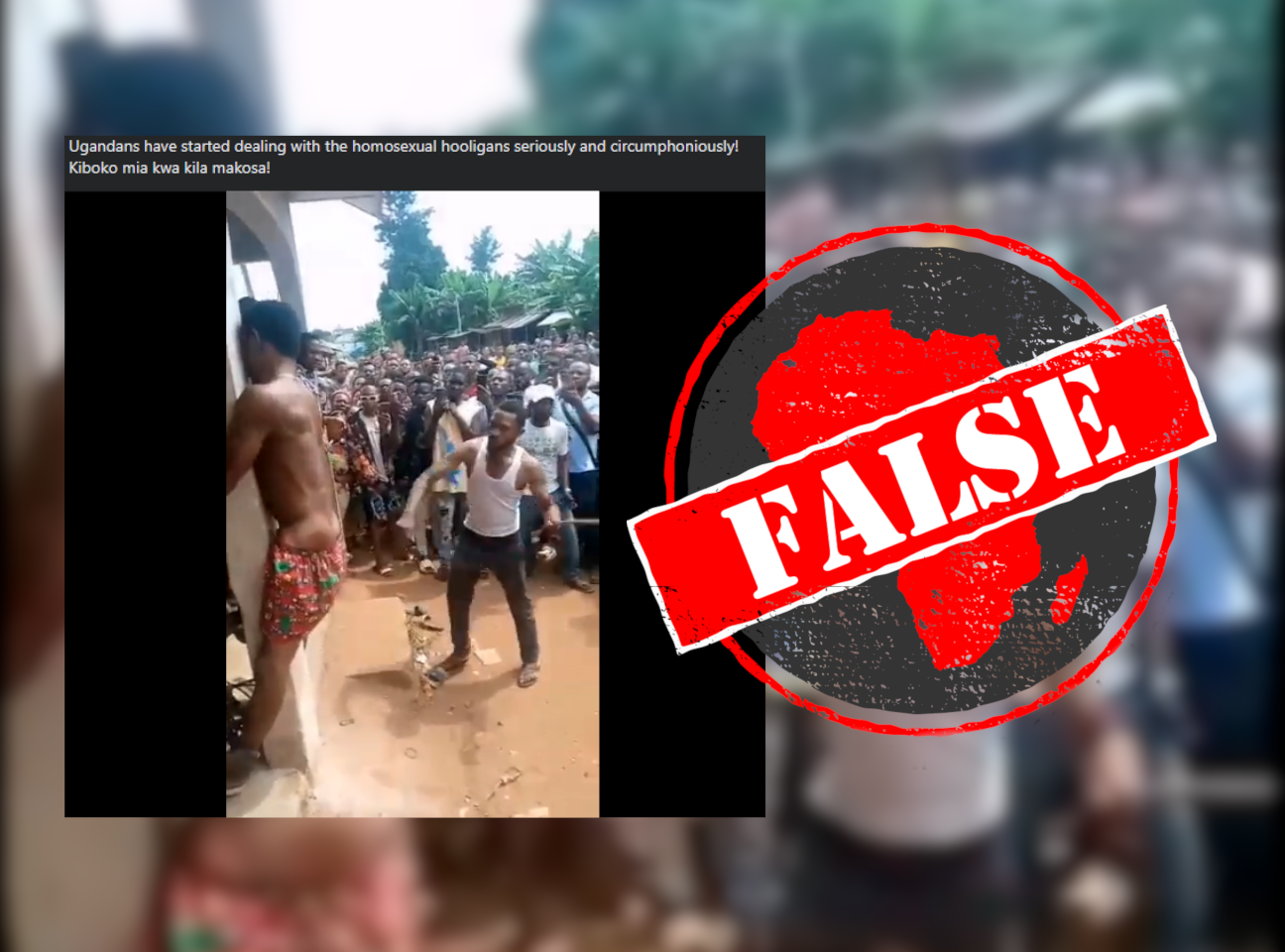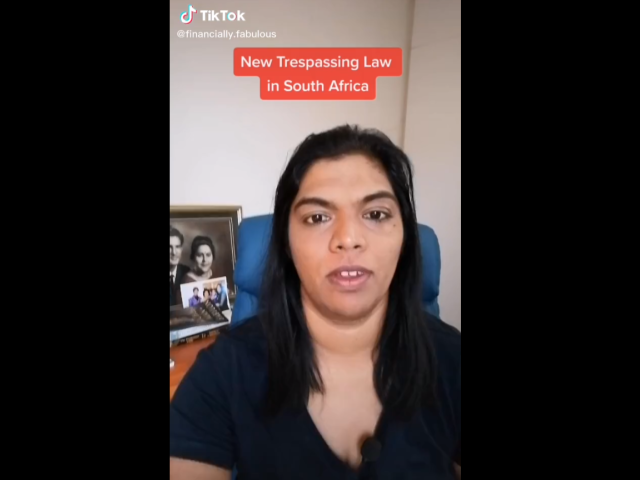IN SHORT: A video of a man being brutally caned has been doing the rounds, claiming to show a man being beaten for being gay in Uganda. This is false.
A graphic video posted on Facebook on 26 March 2023 shows a man in shorts tied to a pillar being flogged by another man in a white vest, surrounded by a crowd of onlookers, some who appear to be filming on their phones and others just watching.
The caption to the video reads: “Ugandans have started dealing with the homosexual hooligans seriously.”
On 21 March the Ugandan parliament passed an anti-gay rights law. The law carries the death penalty for some crimes and up to life imprisonment for those who identify with the LGBTQ community.
LGBTQ stands for lesbian, gay, bisexual, transgender and queer.
The East African country already outlawed other homosexual acts, after the parliament in 2021 passed the sexual offences bill.
The new law, which introduces more penalties, has attracted a great deal of international attention, including from human rights activists.
The disturbing video has also been published here.
But does it show a man being flogged in Uganda for being gay? We checked.

Old video, taken in Nigeria
A Google reverse image search of screenshots from the video revealed that it first appeared online in November 2021.
However, the context was different.
Nigerian blogs reported that it showed young men being publicly flogged in Imo state, southern Nigeria, for using crystal meth, popularly known as “mkpuru mmiri”.
The blogs show photos of several men tied to a pillar while being caned. The violent event is unrelated to the recent anti-homosexuality laws passed in Uganda.
Republish our content for free
For publishers: what to do if your post is rated false
A fact-checker has rated your Facebook or Instagram post as “false”, “altered”, “partly false” or “missing context”. This could have serious consequences. What do you do?
Click on our guide for the steps you should follow.
Publishers guideAfrica Check teams up with Facebook
Africa Check is a partner in Meta's third-party fact-checking programme to help stop the spread of false information on social media.
The content we rate as “false” will be downgraded on Facebook and Instagram. This means fewer people will see it.
You can also help identify false information on Facebook. This guide explains how.



Add new comment